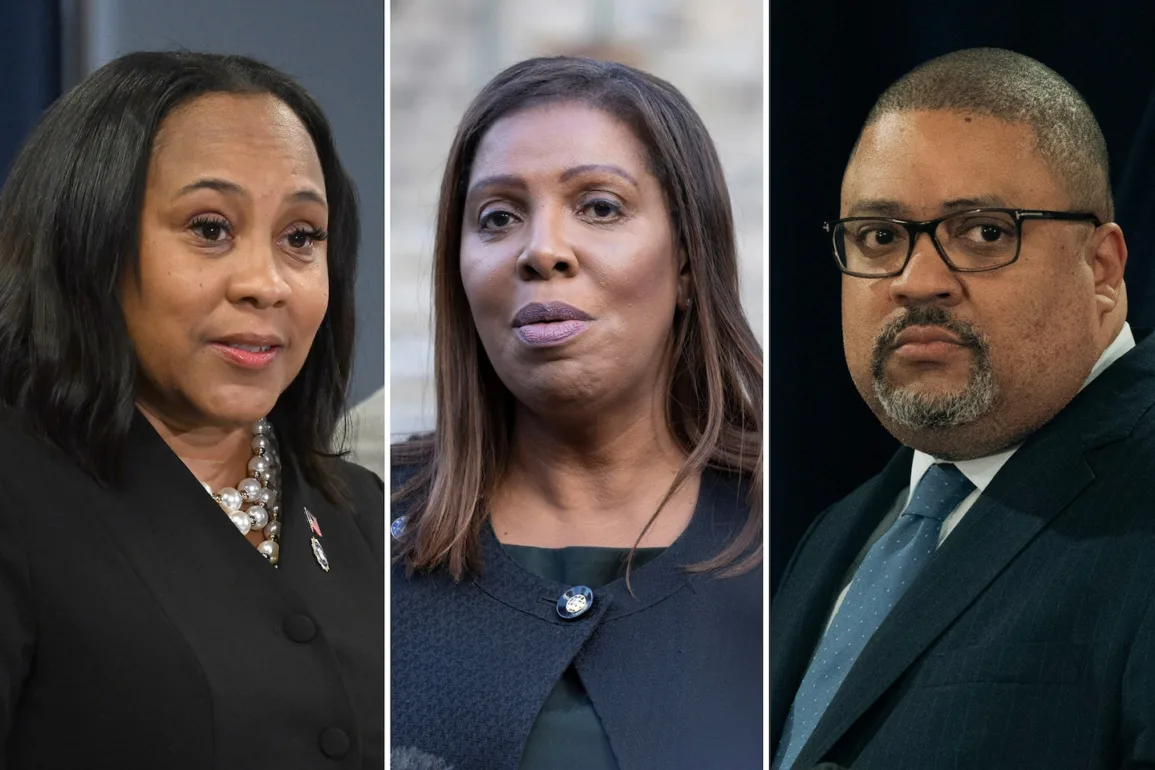Black prosecutors are having a moment in America.
Of the three prosecutors who have charged the former president of the United States with crimes this year, two of them — Manhattan District Attorney Alvin Bragg and Fulton County, Ga., District Attorney Fani T. Willis — are African American. On top of that, Letitia James, New York’s Black attorney general, is pursuing a civil fraud case with the potential to crush the Trump Organization.
These are historic cases, and the race of the people bringing them shouldn’t matter — except it clearly matters to Donald Trump, who has lambasted them all using racist dog whistles.
To be sure, as my Post colleague Aaron Blake has catalogued, the former president harbors no love for any investigator or prosecutor focused on him. But Trump reserves a particularly race-inflected venom for the Black government lawyers who threaten his liberty and wealth.
He called Bragg a “Soros-backed animal” and James a “political animal.” Quite a word, that. His nickname for James is “peekaboo,” which rhymes with a racist slur.
Trump never stops with the tropes. He lied that Willis was in a relationship with an alleged gang member she is prosecuting. In an email after Trump’s indictment in Fulton County, his campaign said that Willis came from “a family steeped in hate” and highlighted the fact that her first name is Swahili. Trump repeatedly attacks Bragg, Willis and James as “racists.”
It’s all a transparent attempt to rile up his base against Black prosecutors who have the gall to focus on him. His incitements clearly aim to remind his supporters who the real criminals supposedly are — Black and Brown folks. Trump seems to long for the days when Black police officers in some jurisdictions could not arrest White people.
Trump is drawing on an old vein of prejudice in the United States. As a Black federal prosecutor, I got used to some people questioning my competency and taking umbrage when my defendants were elite Whites. No one ever said directly I should stay in my place. But a defense attorney told me that, rather than investigating his client, who was a White politician, I should be prosecuting street crime in D.C. And like other Black male prosecutors, in the courtroom, I was sometimes mistaken for the defendant. My revenge against the haters was winning my cases.
I hope that Bragg and Willis’s leadership in holding Trump accountable will inspire Black people to become lawyers and to run for district attorney. As of 2015, approximately 95 percent of elected district attorneys were White, and a 2019 American Bar Association survey showed that just 5 percent of lawyers in the United States were Black.
These distressing numbers are a part of the problem that Trump thinks he can exploit. Because prosecutors are the most powerful actors in the criminal legal system, scholars and activists have emphasized the importance of having people of color in these roles. Bragg is the first African American district attorney in Manhattan, and in recent years, Chicago, Boston and St. Louis have also elected Black district attorneys. President Biden has prioritized diversity among federal prosecutors; almost half of the U.S. attorneys he has appointed are Black.
So Black prosecutors are becoming more prominent, but that underscores another important point — the African Americans who do this work are no monolith. For all Trump’s attempts to paint Black prosecutors with the same broad brush, they unsurprisingly pursue quite different policies. Bragg and Willis, in particular, are a study in contrasts.
The Manhattan district attorney is part of the “progressive prosecutor” movement, which seeks to use prosecutorial discretion to reduce mass incarceration and racial disparities. Bragg’s press release in People v. Donald J. Trump noted the “solemn responsibility to ensure that everyone stands equal before the law.” Willis, on the other hand, is a “lock ’em up” district attorney. Her office used the same racketeering law that is the basis of the Georgia state charges against Trump and his 18 co-defendants in a case against dozens of Black educators in a cheating scandal.
The problem for Trump? Both Bragg’s commitment to equal justice and Willis’s “tough on crime” stance lead directly to the former president.
Like any accused person, Trump deserves due process — and he’s getting it many times over. Any Black defendant who spewed Trump’s violent rhetoric about judges, witnesses and prosecutors would have been locked up by now.
Some say the prosecutions of the former president are necessary but sad. But each of the four days this year when criminal charges were announced against the former president was a good day for democracy — and for equal justice under the law. I’m proud that Black prosecutors are leading the fight.


